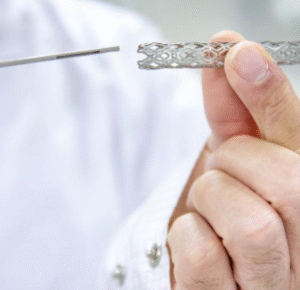Thyroid health is more essential to overall well-being than most people realize. Located at the base of your neck, your thyroid gland plays a vital role in regulating hormones that govern metabolism, energy levels, and even mood. When thyroid disorders arise—such as hypothyroidism, hyperthyroidism, or nodules—they can lead to discomfort or serious health complications if left untreated.
This is where ENT (Ear, Nose, and Throat) specialists—or otolaryngologists—play a crucial role. While many people assume thyroid care is limited to endocrinologists, ENT specialists are trained to diagnose, treat, and manage many thyroid-related issues, often offering personalized, hands-on care.
This post will unpack the key roles ENT specialists play in thyroid health, from diagnosis to treatment, and highlight why their expertise in managing thyroid conditions is vital to your overall health.
Why Thyroid Health Matters
Your thyroid might be small, but it has a big job to do. Shaped like a butterfly and located in the front of your neck, this gland produces essential hormones, including thyroxine (T4) and triiodothyronine (T3). These hormones regulate important bodily functions such as:
- Metabolism (how your body uses energy)
- Heart Rate (ensuring a steady rhythm and pace)
- Body Temperature (keeping you warm or cool when needed)
- Mood (contributing to mental balance and emotional wellness)
When the thyroid doesn’t function properly, it can cause a variety of symptoms. Common disorders include:
- Hypothyroidism (underactive thyroid): Causes symptoms like fatigue, weight gain, and cold sensitivity.
- Hyperthyroidism (overactive thyroid): Can trigger rapid heartbeat, weight loss, and anxiety.
- Thyroid nodules or goiters (lumps or swelling): May lead to visible changes in the neck or difficulty swallowing.
Given how interconnected thyroid function is with overall health, ensuring its health and proper function is critical for long-term well-being.
When Should You See an ENT Specialist for Thyroid Issues?
While your primary care doctor or endocrinologist is likely to be the initial point of contact for thyroid concerns, ENT specialists are often the go-to experts for advanced care. Here’s when seeking an ENT specialist is warranted:
- If your care provider detects a thyroid nodule or lump during routine exams or imaging scans.
- If you have difficulty swallowing or persistent throat discomfort, which could indicate a thyroid-related issue.
- For surgical evaluation when thyroid removal or biopsy is required. ENT doctors often handle these procedures with high precision.
How ENT Specialists Diagnose Thyroid Disorders
One of the key roles ENT specialists play is ensuring an accurate diagnosis of thyroid conditions. Here are some of the diagnostic tools they use to evaluate thyroid health in detail.
1. Physical Examination
ENT specialists begin with a comprehensive physical exam, which includes feeling the neck for lumps, irregularities, or enlarged thyroid tissue. This hands-on approach often uncovers subtle abnormalities that might go unnoticed otherwise.
2. Ultrasounds
Using advanced ultrasound imaging, ENT specialists can take a detailed look at the thyroid gland’s structure. Ultrasounds are painless and help detect nodules, swelling, or other structural issues with incredible precision.
3. Biopsy for Diagnosis
When nodules or growths are detected, ENT doctors may perform a fine needle aspiration biopsy to collect cells for analysis. This enables them to rule out cancerous growths and decide whether surgical intervention is necessary.
How ENT Specialists Manage Thyroid Health
Once a diagnosis is made, ENT doctors work closely with you to manage your thyroid health through individualized care plans.
1. Monitoring and Observation
Not all thyroid conditions require immediate treatment. For example, small, non-cancerous nodules may simply need periodic monitoring, for which ENT doctors use ultrasounds and follow-up exams.
2. Medication Management
For conditions like hyperthyroidism and hypothyroidism, ENT specialists collaborate with endocrinologists to provide medication-based solutions. Hormone replacement therapy or anti-thyroid medications can often restore balance when the thyroid is over- or under-active.
3. Minimally-Invasive Procedures
ENT specialists also perform procedures like:
- Fine-needle aspiration biopsies for non-surgical testing of suspicious nodules.
- Radiofrequency ablation (RFA) to shrink nodules without surgery.
4. Thyroid Surgery Expertise
When surgery is required, ENT specialists are leaders in performing thyroidectomies (removal of the thyroid gland, partly or fully). They ensure minimal invasiveness, fast recovery, and scar management. For cases involving potential malignancy, they also remove affected lymph nodes.
Why Choose an ENT Specialist for Thyroid Health?
You might wonder, why not just stick with an endocrinologist for thyroid care? The truth is, ENT specialists have unique expertise that complements traditional endocrinology care.
1. Surgical Precision
ENT doctors have specialized training in head and neck anatomy, making them highly skilled in delicate thyroid surgeries. Their focus ensures procedures are safe and effective, with minimal disruption to surrounding nerves and tissues.
2. Comprehensive Neck Care
ENT specialists consider the broader context of issues in the neck area, such as related throat, voice, or airway problems, ensuring holistic care for symptoms that might overlap.
3. Personalized Attention
Smaller, clinic-based ENT practices frequently offer more personalized care compared to larger hospital systems. From explaining test results in simple terms to tailoring treatment approaches to individual needs, ENT specialists prioritize patient understanding and comfort.
Take Charge of Your Thyroid Health
If you’re experiencing symptoms like fatigue, unexplained weight changes, or discomfort in your neck, prioritizing your thyroid health could make a world of difference. ENT specialists bring unique skills and technologies to accurately diagnose and manage thyroid conditions, giving you the personalized care you deserve.
Don’t wait for symptoms to worsen—schedule a consultation with an ENT specialist today. Early diagnosis and management can help you lead a healthier, more balanced life.



